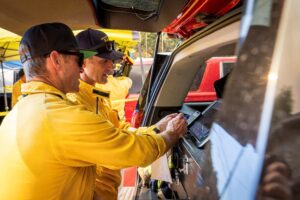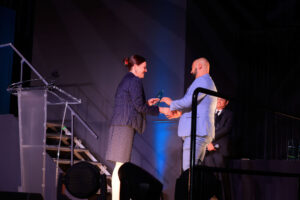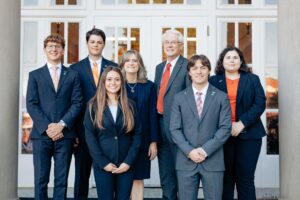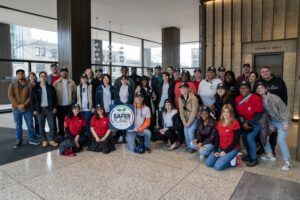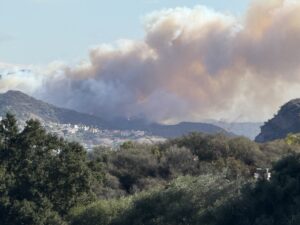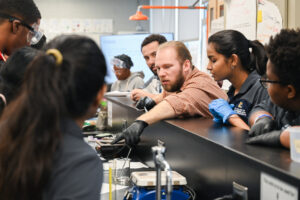UL Research Institutes Joins U.S. Fire Administrator’s Summit on Fire Prevention and Control
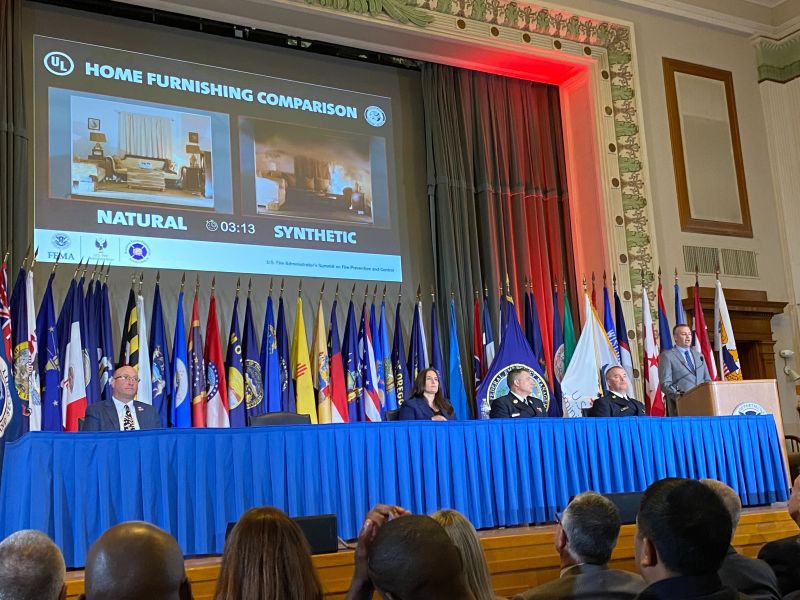
Our Fire Safety Research Institute Appointed to USFA task groups addressing critical issues facing the fire service
On Oct. 11, 2022, The U.S. Fire Administration (USFA), a component of the Federal Emergency Management Agency (FEMA), in partnership with the National Fallen Firefighters Foundation (NFFF), hosted the U.S. Fire Administrator’s Summit on Fire Prevention and Control: State of Science. The summit marks the 75th anniversary of the 1947 President Truman Conference on Fire Prevention and Control that launched the America Burning report and established the USFA.
“In 2022, the climate crisis fuels more frequent, destructive and deadly wildfires. In addition to the growing burdens of wildfire, the demands on our nation’s local fire departments continue to increase, further exacerbating daily fire impacts on all our communities,” said Dr. Lori Moore-Merrell, U.S. fire administrator. “We gather at this national roundtable from different organizations, but today we stand together as a unified fire service,” she added, stressing the need for the fire service to have a strong, single voice to bring about change.
Among those in attendance at this historic event were UL Research Institutes’ (ULRI) chief research officer, Chris Cramer, and Fire Safety Research Institute (FSRI) executive director, Steve Kerber alongside representatives from the International Association of Fire Fighters (IAFF), National Fire Protection Association (NFPA), National Institute for Occupational Safety and Health (NIOSH), Center for Fire, Rescue & EMS Health Research (CFREHR), Philadelphia Fire Department, City of New York Fire Department and other notable fire safety organizations.
Speakers presented about topics critical to the fire service and safety, including research, codes and standards, climate change, wildfire, recruitment, retention and health. Dr. Kerber was among those chosen to present, and he described how new technology and changes in today’s homes and furnishings have made fires more deadly than in the past. He further emphasized the fire environment and society continue to evolve and create new fire safety challenges in the world. “Evolutions will continue. We can’t let them continue to outpace safety,” said Kerber.
Several FSRI Advisory Board members also featured prominently on the agenda. Noting that the World Health Organization’s International Agency for Research on Cancer recently classified firefighting as a known human carcinogen, Dr. Kenneth Fent, a research industrial hygienist at NIOSH, called for firefighter participation in a new data collection effort called the National Firefighter Registry (NFR), which aims to generate detailed knowledge about cancer in the fire service to reduce the disease’s incidence. Dr. Denise Smith, a professor at Skidmore College in New York and a research scientist at the University of Illinois Fire Service Institute, discussed the reasons firefighters also have a higher risk of heart disease. According to Smith, firefighters should be screened for cardiovascular disease and receive preventive fitness and wellness programs. Commissioner Adam K. Thiel, City of Philadelphia Fire Department, shared valuable insights into the far-reaching impact the fire service makes in their community. “The United States has a fire problem. America is still burning.” said Thiel. “We can do better. We must do better. And we cannot do it alone. Fire is everyone’s fight.”
In a virtual address to the Summit, United States president, Joe Biden, underscored how many of the outcomes from the original Truman Conference still hold true today. “Extreme heat and prolonged drought are turning wildfire season into wildfire years. And local firefighters are being called on more and more to respond to the fires in the wildland urban interface (WUI),” said Biden. “I want you to know we’re doing everything we can to make sure you have the resources you need to do your job as safely and efficient as possible.”
FSRI’s extensive research and evidence-based insights will continue to inform what evolutions in strategies and tactics may be needed to address the nation’s fire problems. Following the Summit, Dr. Kerber was among those leaders gathered from research, national organizations and governmental affairs to discuss ways to collaboratively advance six critical fire safety needs requested by federal officials, which included:
- Improving parity with law enforcement in policy development
- Investing in a national apprenticeship program to address shortages and diversity
- Providing behavioral health resources to the fire service, preparing firefighters for climate-driven increases in wildfires in the wildland urban interface
- Implementing and enforcing codes and standards for fire-safe housing
- Establishing a comprehensive firefighter cancer strategy
Under Moore-Merrell’s guidance, six task groups were formed to address these urgent issues and this week a landing page was published that highlights the issues in more detail and features a recorded video of the State of Science presentations delivered during the Summit. The task groups are charting a path forward for each area of concentration and will turn to the USFA’s Fire and Life Safety Communicators Initiative (FLSCI) to develop a strategy for message delivery, promotion and amplification over the coming weeks, months and years. FSRI is represented on three of the task groups and FSRI’s director of research amplification, Zoe Susice, represents FSRI on the FLSCI and is a member of the messaging committee that will lead the initiative’s efforts in this area.
PUBLISHED

